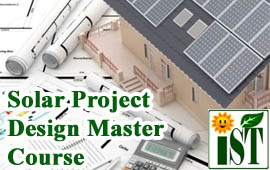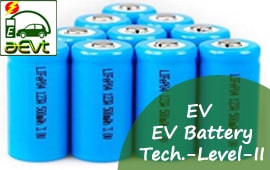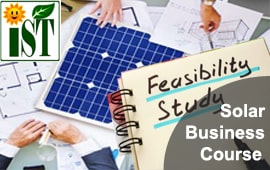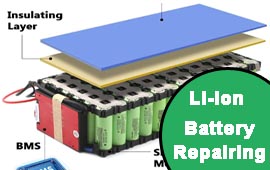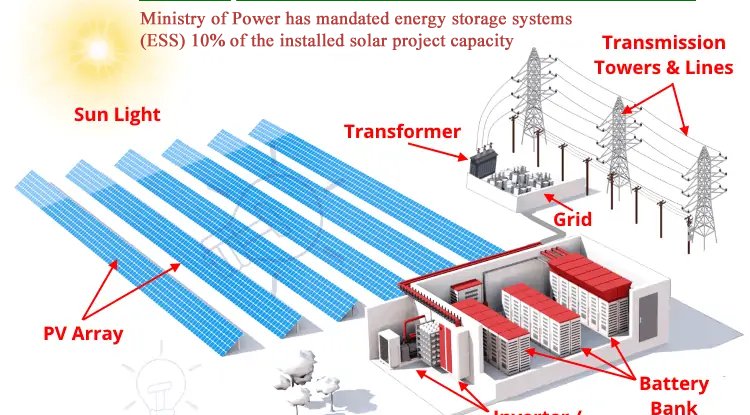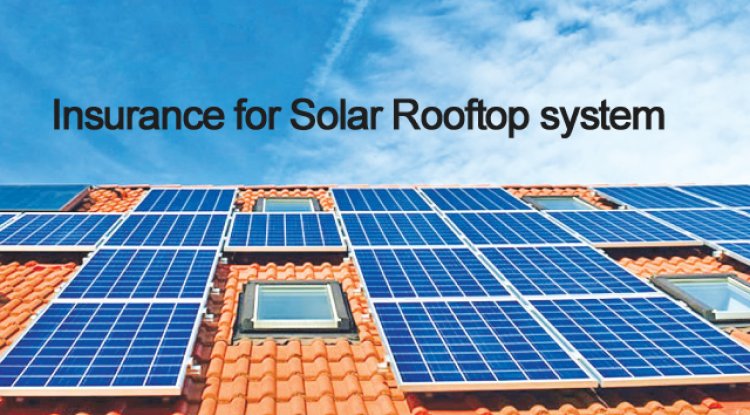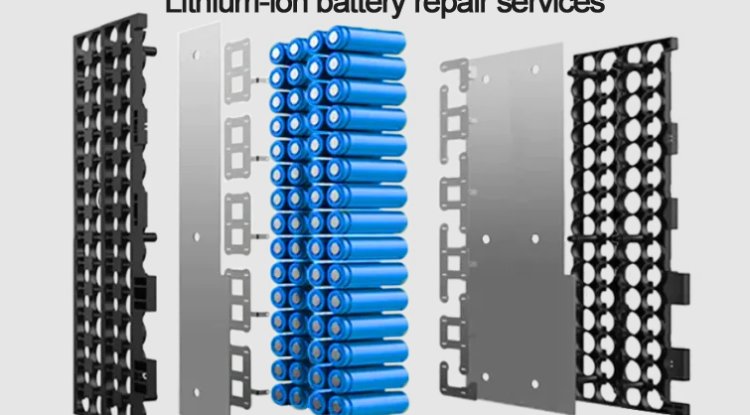Challenges and opportunities for high-quality Lithium-ion Battery Manufacturing
PR Newswire: High-quality lithium-ion battery manufacturing faces numerous challenges, including raw material sourcing, complex manufacturing processes, global dependence, and environmental concerns. Opportunities exist in expanding material alternatives, investing in advanced manufacturing, and strengthening the supply chain.
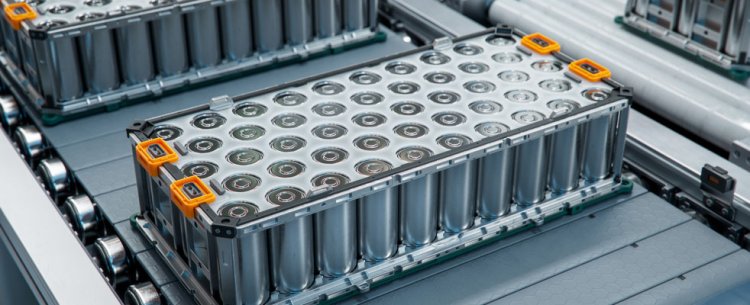
Lithium-ion batteries play a significant role in mitigating global warming by enabling clean energy solutions and reducing reliance on fossil fuels. Lithium-ion battery become crucial for electrifying transportation, storing renewable energy, and stabilizing the power grid, all of which contribute to lower carbon emissions.
Rapid electrification of the global transportation sector, combined with the growth of renewable energy and storage systems, we are seining continued expansion of the demand for batterie. That led to a rapid increase in the number of batteries produced. Yes, global battery pack production is increasing significantly. Global battery manufacturing capacity reached 3 TWh in 2024 and is expected to triple in the next five years.
In CY2024, the Indian electric two-wheeler (e2W) market saw 1.14 million units sold, representing a 33% increase from the previous year. This segment accounted for 59% of the total EV sales in India, a slight increase from the 56% share in 2023. The market is expected to grow at a CAGR of 28.34% between FY2025 and FY2032, according to Marketsandata.com.
Government incentives and subsidies are attracting new market players, and the market is expected to continue its upward trajectory. Transitioning from lead-acid to lithium-ion batteries is enhancing vehicle performance and reducing operating costs. Offering battery leasing programs can make E3Ws more affordable for consumers and provide a recurring revenue stream. Partnering with E3W manufacturers and providing financing options can create a comprehensive ecosystem for E3W adoption. The E3W market is projected to reach USD 3,782.3 Million by 2033, with a CAGR of 13.19% during 2025-2033.
Factors like rising fuel prices, government incentives, and increasing consumer preference for eco-friendly transportation options are driving the growth of the e2W e3W market. This market is expected to see substantial growth, with the potential for various business models, including battery manufacturing, charging infrastructure, and battery swapping services.
Scaling up from lab-scale prototypes to large-scale manufacturing involves ensuring consistent quality and reliability, which can be a significant hurdle.
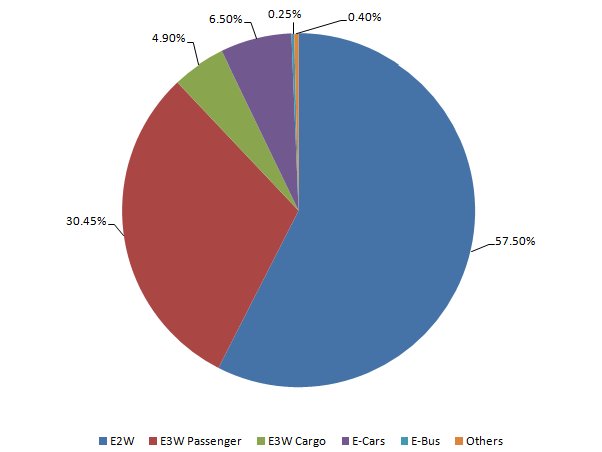
Challenges in Lithium Ion Battery Production
- Good quality lithium-ion cell sourcing issues in india - India Reliance on cell imports and this leads to dependency on a limited number of foreign suppliers, exposing India to geopolitical risks and price volatility.
- Manufacturing Complexities - Making industrial lithium-ion batteries is a complex and challenging process. Lithium-ion battery packs are made from individual cells, and assembling them requires precision and stringent quality control. Achieving consistent quality and safety standards requires precise engineering and advanced manufacturing technologies.
- Supply Chain Challenges - Disruptions in the supply chain, such as those caused by geopolitical conflicts or trade restrictions, can impact the availability of raw materials and components, potentially disrupting production.
- Collaboration Challenges - Collaborating with expats in the lithium-ion battery sector can present challenges related to cultural differences, communication barriers, and the need for specialized skills. Designing a custom battery often requires a team with expertise in battery chemistry, material science, mechanical engineering, and electrical engineering, all collaborating effectively. These challenges can impact project success, innovation, and the overall efficiency of the battery production process.
- Specialized Skills - The lithium-ion battery sector requires specialized skills, and expats may not always have the specific experience or knowledge needed for certain roles. The fast-paced nature of battery technology requires constant learning and adaptation, which can be challenging for both local and expat employees. To understand why batteries fail, requiring analytical skills and a deep understanding of battery chemistry and physics.
-
Design Performance of Pack/Module - Different cell chemistries and configurations can result in variations in performance, energy density, and power delivery, which need to be carefully considered and managed during the design process. The design must ensure the battery meets the specific performance requirements of the application, including energy density, power delivery, and cycle life.
-
Custom Thermal Management system - Custom batteries may require specialized thermal management systems to prevent overheating and ensure safe operation.
Lithium iron phosphate (LiFePO4 or LFP) batteries are critical for electric vehicles, solar energy storage, and industrial applications. Based on global market share and technical capabilities, the top 10 LiFePO4 battery manufacturers are:
- BYD – Inventor of Blade Battery technology
- Ufine Battery – Custom LFP solutions for OEMs
- CATL – World’s largest EV battery supplier
- LG Chem – High-density LFP for energy storage
- Panasonic – Automotive-grade reliability
- Samsung SDI – Industrial & residential ESS
- CALB – Aviation-certified LFP cells
- Lishen Battery – Mass production experts
- Farasis Energy – Fast-charging technology
- EVE Energy – IoT & medical applications
1. BYD Company Limited
Company Introduction: BYD, or “Build Your Dreams,” pioneered clean energy and electric transportation solutions. BYD’s commitment to innovation has made us a global leader in electric vehicles (EVs) and lithium iron phosphate (LiFePO4) batteries, such as the “Blade Battery.” They strive to create a sustainable future by providing eco-friendly mobility solutions.
Established Year: Founded in 1995.
Address: Shenzhen, China.
Website: https://www.byd.com/pc/
Key Highlights:
- Pioneer of Blade Battery (1.2 million km lifespan)
- Certifications: IATF 16949, UN38.3, CE
- Major Clients: Tesla, Toyota, BMW
Global Capacity: 135 GWh/year across 15 factories
Innovation: Passed nail penetration test with zero combustion
2. Ufine Battery (Guangdong Ufine New Energy Co., Ltd.)
Company Introduction: Ufine Battery is a trusted name in lithium iron phosphate (LiFePO4) batteries. Our focus on quality and reliability has made us a preferred choice for customers worldwide. We specialize in crafting “Ufine 26650 LiFePO4” batteries that power various applications, from electric vehicles to renewable energy storage systems.
Established Year: Established in 2007.
Address: Jiangmen, China.
Website: https://www.ufinebattery.com/
Key Highlights:
- Specializes in 3.2V, 12V, 24V, 36V, 48V LFP cells
- Certifications: UL, RoHS, MSDS
- Customization: Voltage (3.2V-48V), capacity (10Ah-500Ah)
Applications: Marine batteries, off-grid solar, robotics
MOQ: 1000 units for standard models
3. Contemporary Amperex Technology Co. Limited (CATL)
Company Introduction: CATL is at the forefront of battery innovation, driving the transition to electric mobility and renewable energy. Since its inception, CATL has dedicated itself to developing cutting-edge lithium iron phosphate (LiFePO4) battery technology, including the “CATL 27148148 LiFePO4” series. Their LiFePO4 batteries power electric vehicles and energy storage systems, contributing to a greener planet.
Established Year: Founded in 2011.
Address: Ningde, China.
Website: https://www.catl.com/
Key Highlights:
- World’s largest EV battery supplier (37% market share)
- Certifications: ISO 9001, ISO 14001, OHSAS 18001
- Major Clients: Tesla, NIO, BMW
Innovation: CTP (Cell-to-Pack) technology for higher energy density
Global Capacity: Over 200 GWh/year
4. LG Chem Ltd.
Company Introduction: LG Chem is a global leader in advanced materials and chemical solutions. For decades, it has been at the forefront of lithium iron phosphate (LiFePO4) battery technology, offering products like the “LG 26650 LiFePO4” series. LiFePO4 batteries power everything from smartphones to electric vehicles, driving innovation and sustainability forward.
Established Year: Established in 1947.
Address: Seoul, South Korea.
Website: https://www.lgchem.com/main/index
Key Highlights:
- Leader in high-density LFP for ESS (Energy Storage Systems)
- Certifications: UL 1973, IEC 62619, UN38.3
- Major Clients: GM, Hyundai, Siemens
Innovation: Proprietary stacking technology for improved thermal management
Global Capacity: 120 GWh/year
5. Panasonic Corporation
Company Introduction: Panasonic is synonymous with innovation and reliability. For over a century, it has been shaping the future of technology. Panasonic lithium iron phosphate (LiFePO4) batteries, including the “Panasonic NCR18650 LiFePO4” series, are trusted by consumers and industries worldwide for their superior performance and durability. Panasonic batteries power the devices that enrich our lives, from smartphones to electric cars.
Established Year: Founded in 1918.
Address: Osaka, Japan.
Website: https://na.panasonic.com/us/
Key Highlights:
- Automotive-grade LFP batteries with 10+ years of field reliability
- Certifications: ISO 9001, ISO 14001, UL 2580
- Major Clients: Tesla, Toyota, Ford
Innovation: Silicon-based anodes for higher energy density
Global Capacity: 80 GWh/year
6. Samsung SDI Co. Ltd.
Company Introduction: Samsung SDI is a leading provider of lithium battery solutions, driving innovation across various sectors. With a legacy of excellence, it continues to push technology’s boundaries. Samsung lithium iron phosphate (LiFePO4) batteries, including the “Samsung INR26650 LiFePO4” series, power devices and vehicles, sustainably enabling mobility and convenience.
Established Year: Established in 1970.
Address: Yongin, South Korea.
Website: https://www.samsungsdi.com/
Key Highlights:
- Specializes in LFP batteries for residential and industrial ESS
- Certifications: UL 1973, IEC 62619, UN38.3
- Major Clients: Stellantis, BMW, Rivian
Innovation: Multi-layer stacking for enhanced safety
Global Capacity: 100 GWh/year
7. CALB (China Aviation Lithium Battery Co. Ltd.)
Company Introduction: CALB is a critical player in the lithium battery industry, renowned for its commitment to excellence and innovation. Since its establishment, CALB has dedicated itself to producing high-performance lithium iron phosphate (LiFePO4) batteries, such as the “CALB SE 3.2V 100Ah LiFePO4” series. Our LiFePO4 batteries power electric vehicles and energy storage systems, driving the global shift toward clean energy.
Established Year: Founded in 2007.
Address: Luoyang, China.
Website: http://www.calb.cn/
Key Highlights:
- Aviation-certified LFP cells with ultra-high safety standards
- Certifications: AS9100, ISO 9001, UN38.3
- Major Clients: Xpeng, Geely, SAIC
Innovation: SE (Super Energy) series with 15% higher energy density
Global Capacity: 150 GWh/year
8. Lishen Battery
Company Introduction: Lishen Battery is a leading provider of lithium battery solutions, catering to diverse industries worldwide. With a focus on quality and innovation, Lishen has established itself as a trusted partner for our customers. Lithium iron phosphate (LiFePO4) batteries, such as the “Lishen 26650 LiFePO4” series, power electric vehicles and energy storage systems, contributing to a sustainable future.
Established Year: Founded in 1997.
Address: Tianjin, China.
Website: https://www.lishen.com.cn/
Key Highlights:
- Mass production experts with 25+ years of experience
- Certifications: ISO 9001, ISO 14001, UL 1642
- Major Clients: Dell, HP, Lenovo
Innovation: High-speed production lines for cost efficiency
Global Capacity: 120 GWh/year
9. Farasis Energy (Ganzhou) Co. Ltd.
Company Introduction: Farasis Energy dedicates itself to advancing battery technology and driving the adoption of electric mobility. Since Farasis’s inception, it has been committed to producing high-energy density lithium iron phosphate (LiFePO4) batteries, including the “Farasis 26650 LiFePO4” series. Our LiFePO4 batteries power electric vehicles and energy storage systems, empowering individuals and businesses to embrace sustainable solutions.
Established Year: Established in 2002.
Address: Ganzhou, China.
Website: https://www.farasis.com/
Key Highlights:
- Specializes in fast-charging LFP batteries (0-80% in 15 minutes)
- Certifications: ISO 9001, ISO 14001, UN38.3
- Major Clients: Mercedes-Benz, Geely, SAIC
Innovation: Proprietary electrolyte for improved low-temperature performance
Global Capacity: 50 GWh/year
10. EVE Energy Co. Ltd.
Company Introduction: EVE Energy is a trusted name in the lithium battery industry. It is renowned for its focus on innovation and customer satisfaction. Since EVE’s founding, it has been committed to developing high-performance lithium iron phosphate (LiFePO4) batteries, including the “EVE 26650 LiFePO4” series. Our LiFePO4 batteries power electric vehicles and energy storage systems, contributing to a greener and more sustainable future.
Established Year: Founded in 2001.
Address: Huizhou, China.
Website: https://www.evebattery.com/
Key Highlights:
- Specializes in small-form LFP batteries for IoT and medical devices
- Certifications: ISO 13485, UL 1642, UN38.3
- Major Clients: Honeywell, Medtronic, Siemens Healthineers
Innovation: Ultra-thin LFP cells for wearable devices
Global Capacity: 40 GWh/year
Need Collaboration:
Addressing the challenges in the battery supply chain requires significant investment and collaboration across different sectors, including governments, industry, and research institutions.
-
Formal Agreements:Establishing clear agreements with collaborators regarding intellectual property, liability, and other legal matters is crucial.
-
Regular Communication and Feedback:Maintaining regular communication and providing feedback throughout the design process ensures that everyone involved is on the same page.
-
Iterative Design Process:A collaborative and iterative design process, with prototyping and testing at each stage, can help identify and address potential issues early on.
-
Leveraging Expertise:Collaborating with experts in different fields, such as battery chemistry, material science, and manufacturing, can help overcome challenges and develop innovative solutions.
Funding for lithium-ion battery assembly plants
Government Initiatives:
-
Production Linked Incentive (PLI) Scheme:The government offers financial incentives tied to production milestones, encouraging manufacturers to achieve economies of scale and boost overall industry growth. A substantial budget of INR 18,100 crore (USD 2.4 billion) has been allocated under this scheme.
-
NITI Aayog and Green Growth Equity Fund:NITI Aayog, in collaboration with the Green Growth Equity Fund Technical Cooperation Facility, is working to catalyze private investments into Indian green infrastructure projects, including lithium-ion battery manufacturing.
-
National Manufacturing Mission:The 2025 Budget launched the National Manufacturing Mission with a focus on clean technologies, including EV batteries. This mission aims to boost domestic production and reduce reliance on imported technology.
Other Funding Sources:
-
Private Investment:The government is actively promoting private investment in the battery manufacturing sector, with several companies already making significant investments.
-
International Funding:Organizations like the Green Growth Equity Fund Technical Cooperation Facility (GGEF TCF) are providing technical assistance and financial support to develop and strengthen the pipeline of investable projects in the green energy sector.
-
Bank Loans and Term Loans:Banks and financial institutions offer term loans for setting up battery manufacturing units, as seen in the example of a KVIC (Khadi and Village Industries Commission) project profile.
Important Considerations:
-
Market Research:Before investing, conducting thorough market research is crucial to understand the demand, competition, and potential challenges.
-
Business Plan:A well-defined business plan is essential for securing funding and outlining the project's goals and strategies.
-
Licensing and Permits:Obtaining the necessary licenses and permits for setting up a manufacturing plant is a critical step.
-
Raw Material Sourcing:Ensuring a reliable supply of raw materials is essential for a successful battery manufacturing plant.
Learning lithium-ion battery manufacturing
Several training options for lithium-ion battery manufacturing are available in India, ranging from practical, hands-on courses to online learning platforms and workshops. These courses cover various aspects of lithium-ion battery technology, including manufacturing processes, battery pack assembly, and related technologies like Battery Management Systems (BMS).
-
Academy of EV Technology (AEVT):Offers practical training programs in Pune and Kolkata, focusing on electric vehicle (EV) and lithium battery technology, including battery pack assembly and manufacturing. Their courses range from 2-month programs to shorter intensive sessions.
-
THORS:Provides online courses on lithium-ion battery manufacturing, covering various aspects of the manufacturing process.
-
Business and Entrepreneurship:Academy of EV Technology (AEVT) training programs also provide guidance on starting a battery manufacturing business, including market research, business planning, and sourcing raw materials.
- Research different providers: Compare course content, duration, and cost.
- Consider your experience level: Choose a course that suits your current knowledge and goals.
- Check for certifications: Some training programs offer certifications upon completion, which can enhance your resume.
- Read reviews and testimonials: See what other students have said about the training program.
Policy Archive
Visit ploicy update from -
- BATTERY SWAPPING POLICY - https://static.investindia.gov.in/s3fs-public/2024-12/20220420_battery_swapping_policy_draft_1.pdf
- Electric Mobility Promotion Scheme- 2024 - https://static.investindia.gov.in/s3fs-public/2024-12/emps-2024.pdf
- PLI Scheme for ACC manufacturing facilities in India - https://static.investindia.gov.in/s3fs-public/2024-12/gazette_notification_for_pli_acc_dated_9june21_2_0.pdf
Industry and Business: Industry and Business research is an important part of creating business and strategic plans and blends consumer behavior and economic trends to confirm and improve your business idea.
